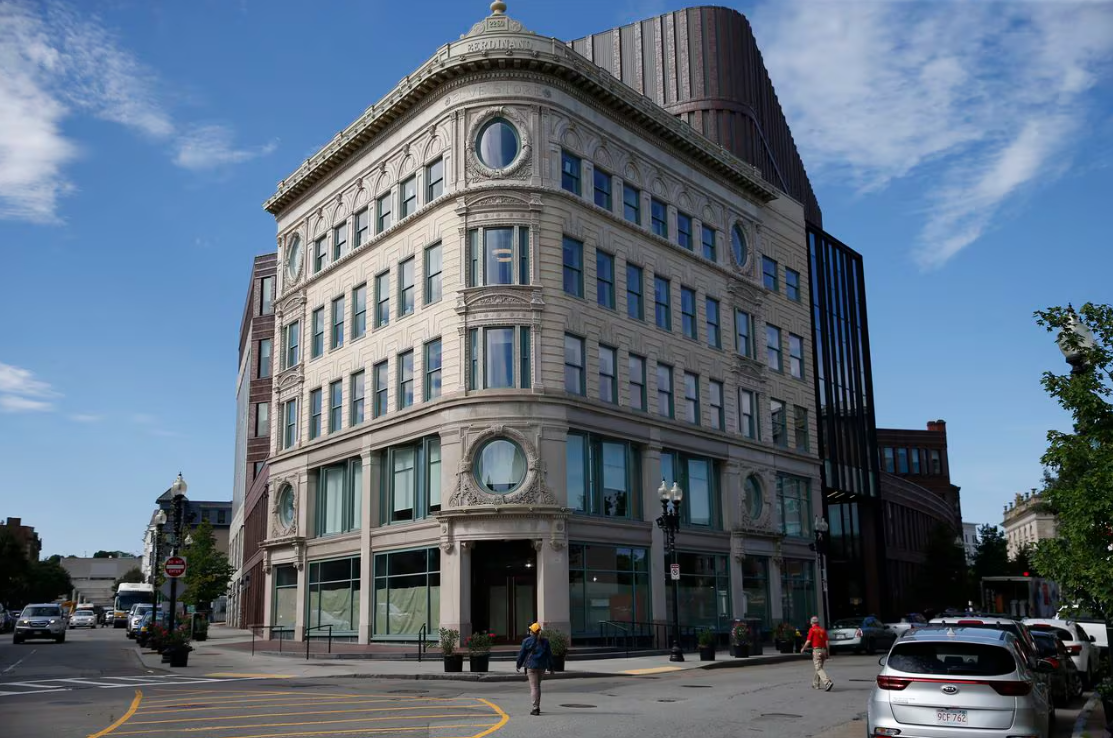波士顿学校委员会批准 15 亿美元支出计划和裁员

【中美创新时报2024年3月27日讯】(记者温友平编译)波士顿学校委员会周三晚上批准了即将到来的学年 15 亿美元的运营预算,该预算将削减数百个职位,整合数十个教室,并在该学区努力应对联邦刺激资金的损失和注册学生人数长期下降的情况下进行其他削减。《波士顿环球报》记者詹姆斯·瓦兹尼斯(James Vaznis)对此进行下述报道。
委员会以5比2的投票结果通过了预算案。成员斯蒂芬·阿尔金斯 (Stephen Alkins, Jr.) 和布兰登·卡德-埃尔南德斯 (Brandon Cardet-Hernandez) 投票反对该提案,认为削减幅度太大。
事实证明,预算削减也不受该地区许多家长的欢迎,他们发起了激烈的运动,以恢复学校的职位和项目。校监玛丽·斯基珀称预算的制定是“十年来最困难的预算之一”,因为旨在帮助学生从大流行期间学校关闭后的学习损失中恢复过来的联邦资金已经结束。
“这份预算要求我们考虑最关键的需求,而且有很多需求,”斯基珀在投票前告诉委员会。
市长吴弭将把支出计划纳入城市预算,并在未来几周内向市议会提交。这将启动对波士顿公立学校如何花钱的另一次公开审查。
吴弭任命了学校委员会的七名有投票权的成员,她试图从市普通基金中注入超过 8000 万美元,以缓冲下一学年的预算削减,这帮助该学区保留了 670 多个资助职位中的 322 个。今年有联邦刺激资金。
斯基珀还能够在某些领域进行新的投资,例如将更多的英语学习者和残疾学生融入传统课堂。
但在高通胀时期,不断上升的运营成本也带来了财务挑战,这一问题困扰着该州各地。这些不断上涨的成本包括额外的 1200 万美元的交通费用和 400 万美元的食品服务费用——多年来 BPS 一直在努力控制这两个支出领域。
由于预算削减,一些委员会成员不情愿地投了赞成票。
“如果我不投赞成票,我就会推迟这一进程,”成员拉斐拉·波兰科·加西亚 (Rafaela Polanco Garcia) 说。
卡代-埃尔南德斯表示,他对预算决策的制定方式仍有太多挥之不去的疑问。
卡代-埃尔南德斯说:“我想投赞成票,成为一个好的盟友和士兵,但同时我也面临很多不确定性。”
几位 BPS 图书馆员在会议的公众评论部分表达了对该学区明显缩减其扩大图书馆服务的资金承诺的担忧。摩根·基欧汉 (Morgan Keohane) 表示,二月份她在休产假期间接到一个电话,称她在 P.A. 的全职图书管理员工作已被取消。多切斯特的Shaw小学将于秋季改为非全日制学校,尽管此后计划发生了变化。
她说:“在提醒学区,根据战略计划,让一名兼职图书馆员为数百名学生服务是不公平的,我很高兴我的职位有所恢复。” “我不是唯一一个地位受到影响或学校不再获得投资的图书馆员。”
一些家长也对预算削减表示不满。
谢丽尔·巴克曼 (Cheryl Buckman) 是多切斯特德弗小学 (Dever Elementary School) 一名五年级学生的母亲,她表示,她的学校多年来遭受了太多毁灭性的削减,其中包括双语项目的取消。
“现在,随着预算的削减,他们可能会失去更多的教师、工作人员和项目,”她说。 “我们的孩子受的苦还不够多吗? ……我们难道不应该通过增加更多项目和更多教师来投资孩子的未来吗?”
在会议晚些时候,斯基珀表示她仍然致力于学校图书馆,并指出它们是学生的重要资源。
自二月初预算提案发布以来,学校委员会向斯基珀和她的团队提出了许多问题,但直到最近才得到答复。
波士顿市研究局在本月早些时候发布的一份报告中发现,学校预算审查程序“严重不足”,需要进行实质性改进,以提高支出决策的公共透明度。
明年每个学生的支出预计将超过 30,000 美元。
学校委员会还听取了一项提案,以民权领袖露丝·巴特森 (Ruth Batson) 的名字重新命名位于多切斯特的波士顿社区领导力学院 (Boston Community Leadership Academy/McCormack)。 她是第一位当选全国有色人种协进会新英格兰地区会议主席的女性,并于 1963 年至 1966 年间担任马萨诸塞州反歧视委员会主席。
20 世纪 60 年代,女子拉丁学校的毕业生巴特森对波士顿学校委员会隔离黑人学生的做法提出质疑,特别是将他们分配到设施不足的学校。她还帮助启动了 Metco 计划,这是波士顿与周边郊区之间的一项自愿学校整合计划。
该委员会将于 4 月 10 日就更名进行投票,并且似乎支持该提案。
题图:波士顿学校委员会周三晚上批准了下一学年 15 亿美元的预算。JESSICA RINALDI/GLOBE STAFF
附原英文报道:
Boston School Committee approves $1.5 billion spending plan and staff reductions
By James Vaznis Globe Staff,Updated March 27, 2024
The Boston School Committee Wednesday night approved a $1.5 billion operating budget for the upcoming school year that would slash hundreds of positions, consolidate dozens of classrooms, and make other cuts as the district grapples with the loss of federal stimulus dollars and a longtime decline in student enrollment.
The committee passed the budget in a 5-2 vote. Members Stephen Alkins, Jr. and Brandon Cardet-Hernandez voted against the proposal, arguing the cuts were too much.
The budget cuts also have proven unpopular with many parents across the district, who have waged spirited campaigns to restore positions and programs to their schools. Superintendent Mary Skipper called the making of the budget “one of the most difficult in a decade” because of the end of the federal money aimed at helping students recover from learning losses following the closure of schools during the pandemic.
“This budget required us to look at the most critical needs and there are many,” Skipper told the committee before the vote.
Mayor Michelle Wu will incorporate the spending plan into the city budget that she will present to the City Council in the coming weeks. That will kick off another public vetting of how Boston Public Schools spends its money.
Wu, who appoints the seven voting members of the School Committee, has tried to buffer budget cuts for the next school year with a more than $80 million infusion from the city’s general fund, which helped the district retain 322 of the more than 670 positions funded this year with the federal stimulus dollars.
Skipper also was able to make new investments in some areas, such as integrating more English learners and students with disabilities into traditional classrooms.
But rising operating costs are also creating financial challenges during a period of high inflation, a problem that is afflicting districts around the state. Those rising costs include an additional $12 million on transportation and $4 million more for food services — two areas of spending that BPS has repeatedly struggled to rein in through the years.
Some committee members cast favorable votes with reluctance because of the budget cuts.
“If I do not vote in favor I would be delaying the process,” said member Rafaela Polanco Garcia.
Cardet-Hernandez said he still had too many lingering questions about how the budget decisions were made.
“I want to vote yes and be a good ally and soldier but at the same time I’m left with a lot of uncertainty,” said Cardet-Hernandez.
Several BPS librarians raised concerns during the public comment portion of the meeting about the district apparently scaling back its funding commitment to expand library services. Morgan Keohane said she received a call in February while on maternity leave that her full-time librarian job at P.A. Shaw Elementary School in Dorchester would be reduced to part-time in the fall, although the plan has changed since then.
“I am grateful that my position was somewhat restored after reminding the district that under the strategic plan, it would be inequitable to have a part-time librarian serving hundreds of students,” she said. “I am not the only librarian whose position has been impacted or whose school is no longer receiving an investment.”
Some parents also expressed frustrations with budget cuts.
Cheryl Buckman, the mother of a fifth-grader at Dever Elementary School in Dorchester, said her school has suffered too many devastating cuts over the years, including the loss of their dual language program.
“Now with these budget cuts, they can lose even more teachers, staffers, and programs,” she said. “Haven’t our children already suffered enough? … Shouldn’t we be investing in our children’s future by adding more programs and more teachers?”
Later in the meeting, Skipper said she remains committed to school libraries, noting they are important resources for students.
Since the budget proposal was released in early February, the School Committee has presented many questions to Skipper and her team, but only recently got responses back.
The Boston Municipal Research Bureau in a report issued earlier this month found the school budget vetting process was “woefully inadequate” and requires substantial improvement in order to increase public transparency around how spending decisions are made.
Per-pupil spending is expected to exceed $30,000 next year.
The School Committee also heard a proposal to rename Boston Community Leadership Academy/McCormack in Dorchester after civil rights leader Ruth Batson, who was the first woman elected president of the NAACP’s New England Regional Conference and also served as chairwoman of the Massachusetts Commission Against Discrimination from 1963 to 1966.
In the 1960s, Batson, a graduate of Girls’ Latin School, challenged the Boston School Committee on its practices of segregating Black students, especially in assigning them to inadequate school facilities. She also helped to launch the Metco program, a voluntary school integration program between Boston and surrounding suburbs.
The committee will vote on the name change on April 10 and appeared to be supportive of the proposal.

